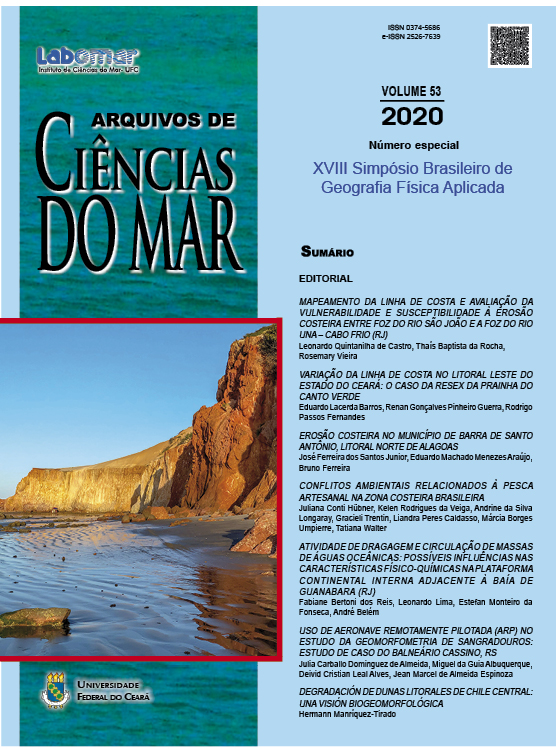Environmental conflicts related to artisanal fisheries in the brazilian coast
DOI:
https://doi.org/10.32360/acmar.v53iEspecial.42686Abstract
This work aimed to identify and map the environmental conflicts that encompass the artisanal fishing community in the Brazilian coastal zone, in order to provide greater visibility to the socialactors victimized by environmental inequality and injustice in favor of economic projects. For this analysis data from the Map of Conflicts and Environmental Injustice in Health in Brazil elaborated by Fiocruz were used, in order to systematize a methodological proposal focused on the fishing community in the Brazilian coastal zone, in order to provide greater visibility to the socialconflicts present in the coastal states of the country and related to artisanal fishing. The results indicate the states of Bahia (14), Ceará (12) and Rio de Janeiro (9) to be the ones with the largest number of fishing related conflicts. Among the main economic activities that generate conflict in artisanal fishing are the chemical and oil/gas industry (35,62%), ports and shipyards (32,88%) – predominant in the south and southeastern regions –, tourism (30,14%) and fishing and shrimp farming activities (24.66%) – with higher incidence in the north and northeastern regions of the country.
Keywords: environmental conflicts, artisanal fishing, coastal zone, environmental management,
social vulnerability.
Downloads
Published
Issue
Section
License
1. Proposta de Política para Periódicos de Acesso Livre
Autores que publicam nesta revista concordam com os seguintes termos:
- Autores mantém os direitos autorais e concedem à revista o direito de primeira publicação, com o trabalho simultaneamente licenciado sob a Licença Creative Commons Attribution que permite o compartilhamento do trabalho com reconhecimento da autoria e publicação inicial nesta revista.
- Autores têm autorização para assumir contratos adicionais separadamente, para distribuição não-exclusiva da versão do trabalho publicada nesta revista (ex.: publicar em repositório institucional ou como capítulo de livro), com reconhecimento de autoria e publicação inicial nesta revista.
- Autores têm permissão e são estimulados a publicar e distribuir seu trabalho online (ex.: em repositórios institucionais ou na sua página pessoal) a qualquer ponto antes ou durante o processo editorial, já que isso pode gerar alterações produtivas, bem como aumentar o impacto e a citação do trabalho publicado (Veja O Efeito do Acesso Livre).

